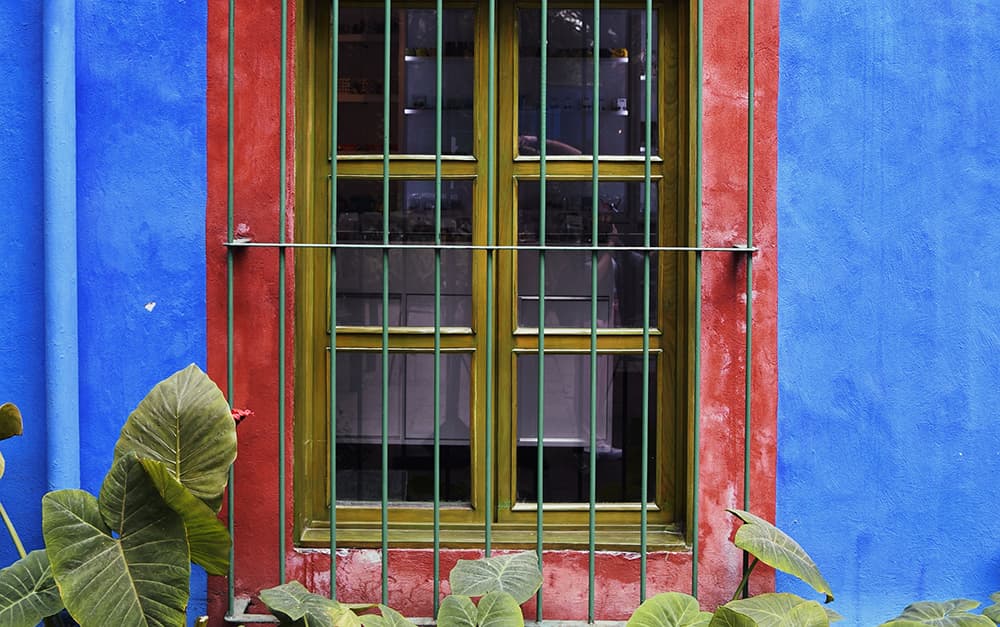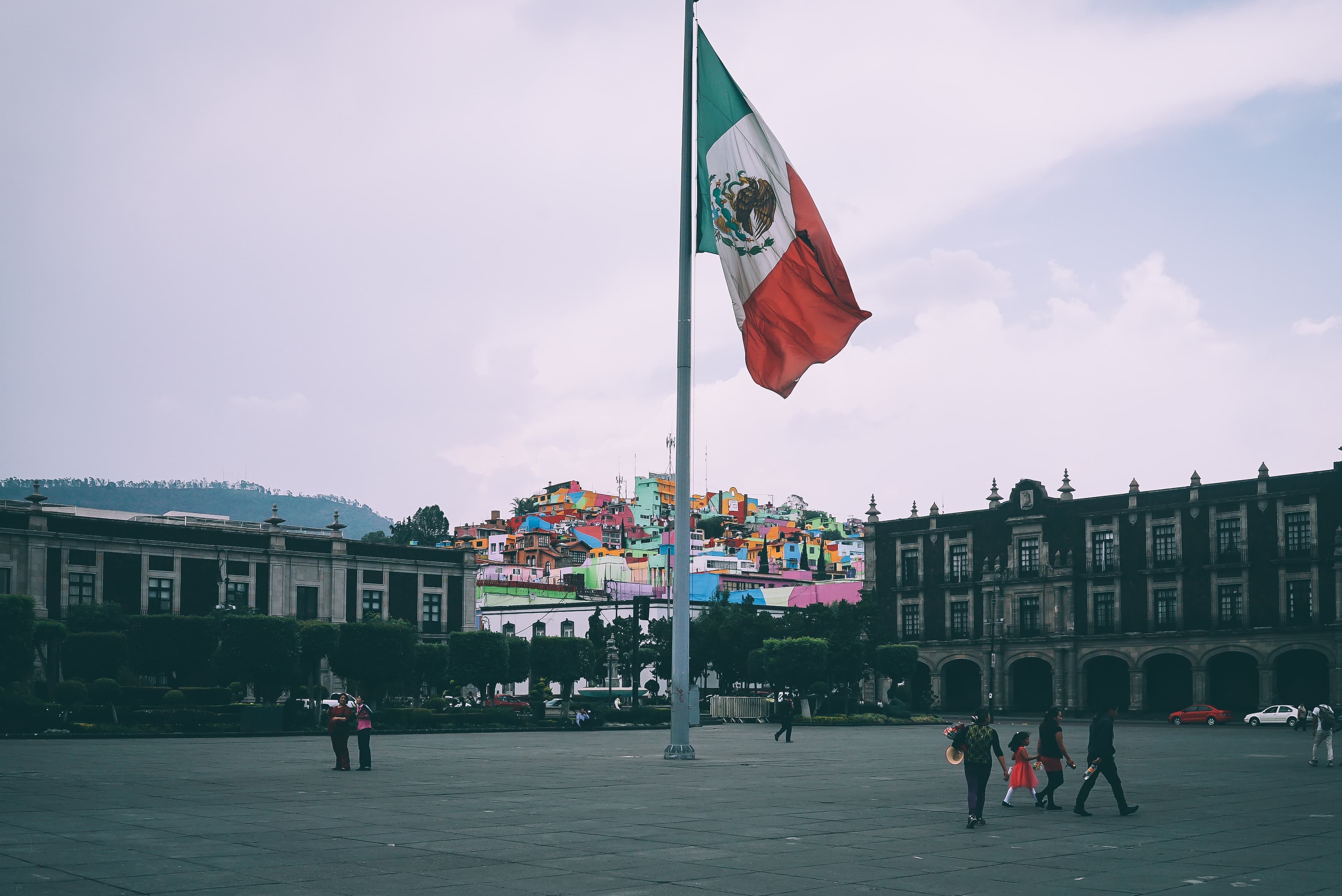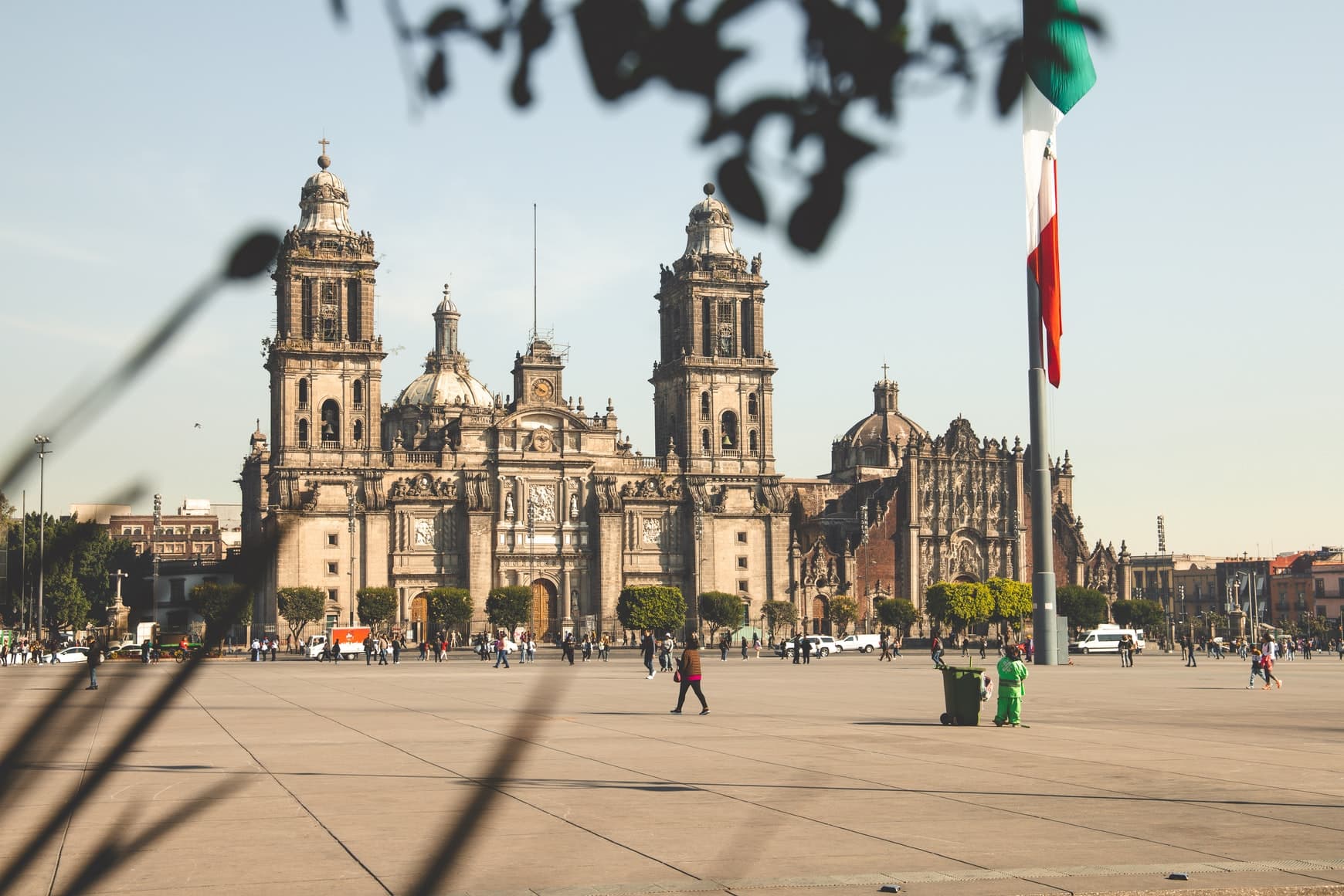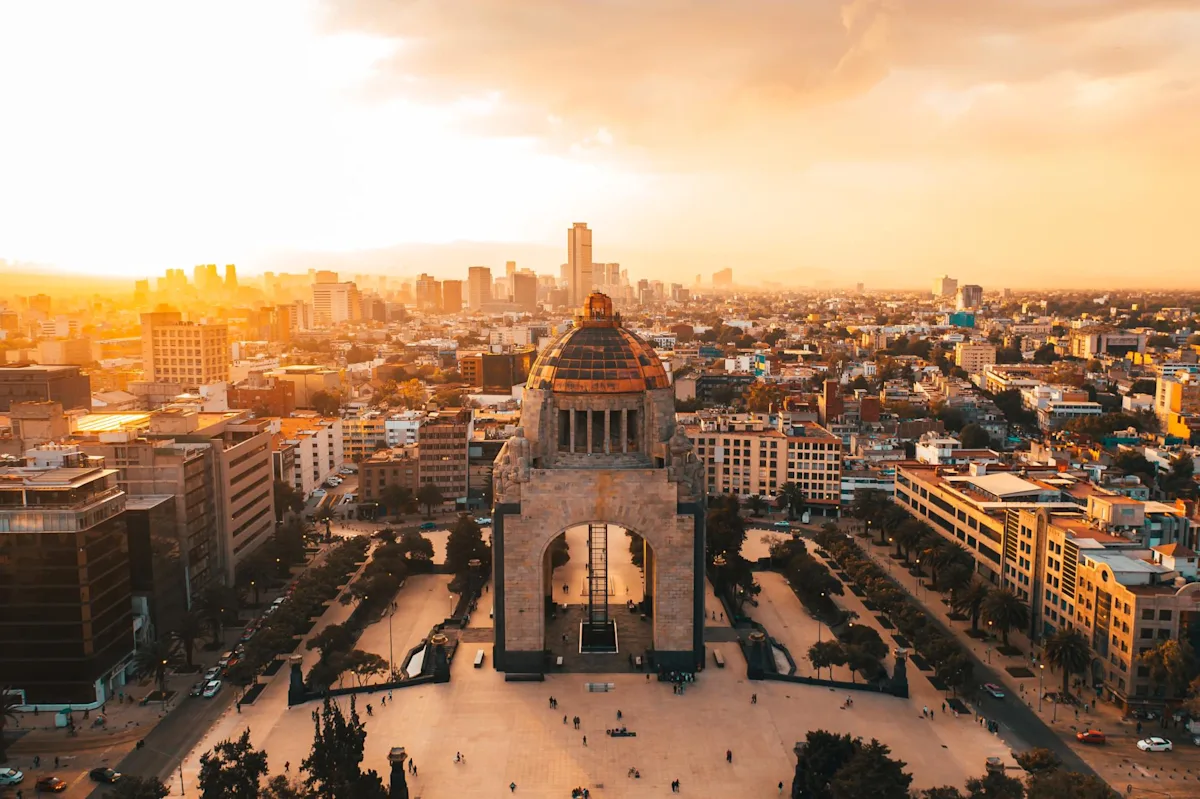
From exploring the ruins of ancient empires to savoring some of the world’s best cuisine, there is no shortage of things to do in Mexico City.
Known as CDMX, the beating heart of Mexico, this sprawling metropolis is the country’s largest and most populous city. It's a bastion of history and art, complemented by a booming nightlife scene and equally enticing gastronomic adventures.
And since any vacation in Mexico City ought to sample all there is to do, below, we'll be exploring the 45 best things to do in Mexico City — categorized into amazing neighborhoods, famous landmarks, popular museums, the best nightlife and events to check out and (of course) the best places to grab a drink or savor a meal.
Ready to travel to CDMX? Connect with a Fora Advisor to customize & book your trip today.
Hip neighborhoods & markets in Mexico City.
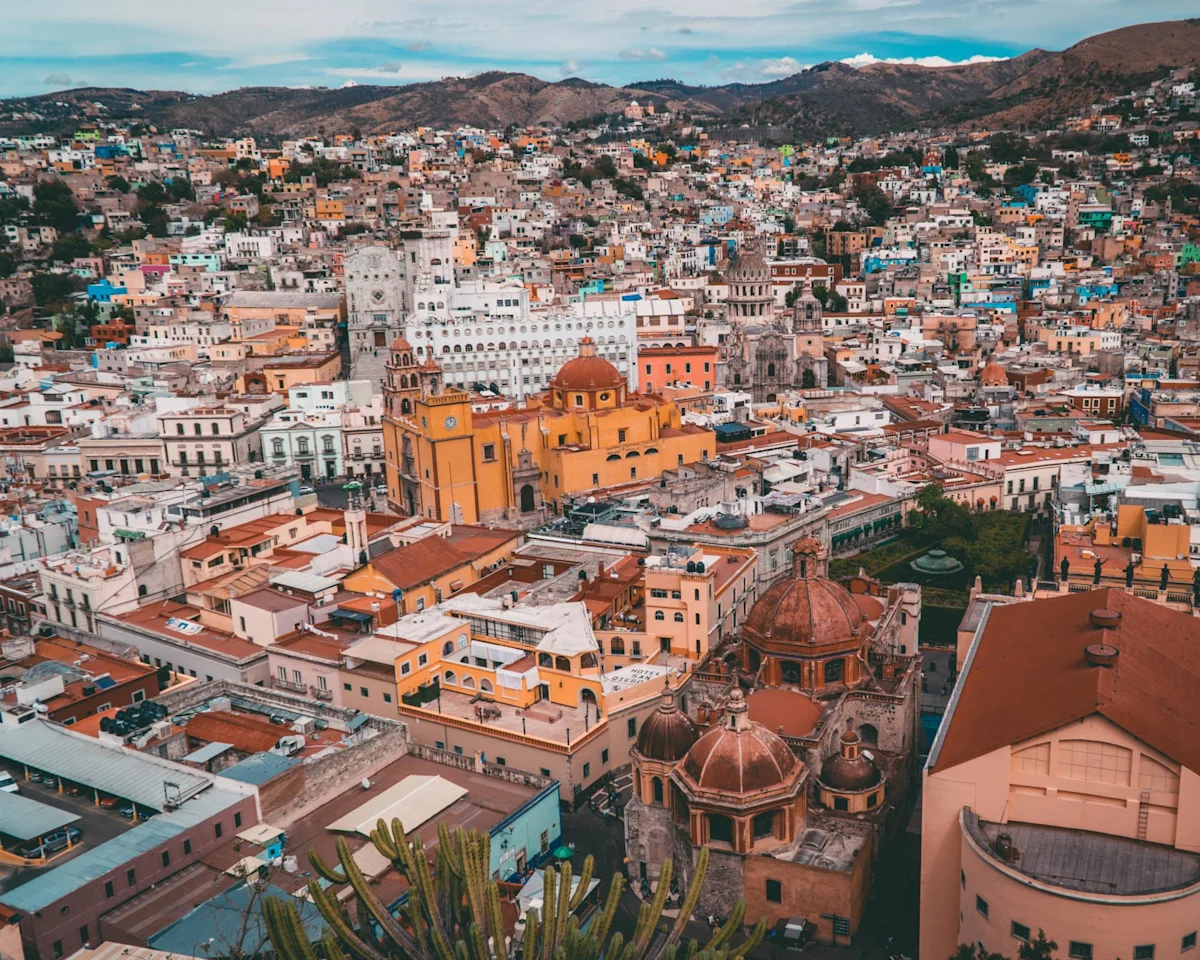
From the posh markets of Polanco to the buzzing nightlife of Zona Rosa, the best and hippest Mexico City neighborhoods offer an exciting variety of shopping, food and entertainment.
1. Polanco.
A must-see for any trip to Mexico City, Polanco is known as one of the city's hippest neighborhoods. Home to the city's most affluent residents, Polanco is often called the “Beverly Hills of Mexico.” This uber-upscale neighborhood is known for its luxury shopping and world-class restaurants.
Here, we recommend strolling through North America’s largest urban park, Chapultepec Forest, and absorbing the neighborhood’s unique take on Colonial Californiano architecture. Or, dive into CDMX’s rich and diverse culture and history at one of Polanco’s many high-class museums like the National Anthropology Museum or Soumaya Museum of Art.
Connect with a Fora Advisor and learn about all the top spots in Polanco, including some of the best hotels in Mexico City.
2. Roma.
A quick ride east of Polanco, Roma is divided into two neighborhoods. Roma Norte offers a fun and artsy blend of trendy markets, wine bars and gourmet restaurants that’d make any hipster proud. Roma Sur, on the other hand, caters to the area’s large population of Latin American immigrants.
This cultural blend makes Roma a worthy competitor to Polanco in terms of cuisine and activities, yet captures a more authentic glimpse of Mexico City’s diverse culture.
3. La Lagunilla Market.
Speaking of authenticity, the market at La Lagunilla is one of Mexico City’s most famous open-air markets, located roughly 10 blocks north of CDMX’s main plaza. A huge variety of homemade and antique goods can be found throughout the area’s many stalls, with a third section devoted to street food (tacos galore).
4. Coyoacán.
Many of the best things to do in Mexico City are in the neighborhood of Coyoacán. The “place of coyotes” began as a small town under Aztec rule before it joined forces with the Spanish Conquistadors. Following the brief war, Coyoacán served as the new center of European rule in New Spain until 1523.
When you walk through Coyoacán’s historical center, you’re walking the same, narrow cobblestone streets that were made in the 16th and 17th centuries. But Coyoacán’s historical relevance doesn’t end there: the neighborhood is also home to La Casa Azul, where Frida Kahlo and Diego Rivera lived and died, as well as the final residence-turned-museum of Leon Trotsky, where the Soviet founder was assassinated.
5. Zona Rosa.
Offering unrivaled nightlife, Zona Rosa is one of Mexico City’s most popular (and LGBTQ+ friendly) barrios — and one of the most unique places to visit in Mexico. Pink cobblestone streets give way to rows of bars (hello, karaoke), nightclubs and restaurants.
Among the many other things to do in Zona Rosa, you’ll find some of Mexico City’s best and most fashion-forward shopping. The “pink zone” is home to many of Mexico’s top designers — with a special appeal to travelers who enjoy indie styles. Every June, Zona Rosa also hosts Mexico’s (and one of the world’s) largest gay pride parades.
Chat with a Fora Advisor for the lowdown on Zona Rosa and check out our guide on the most exciting things to do in Mexico City at night.
Architecture & landmarks in Mexico City.
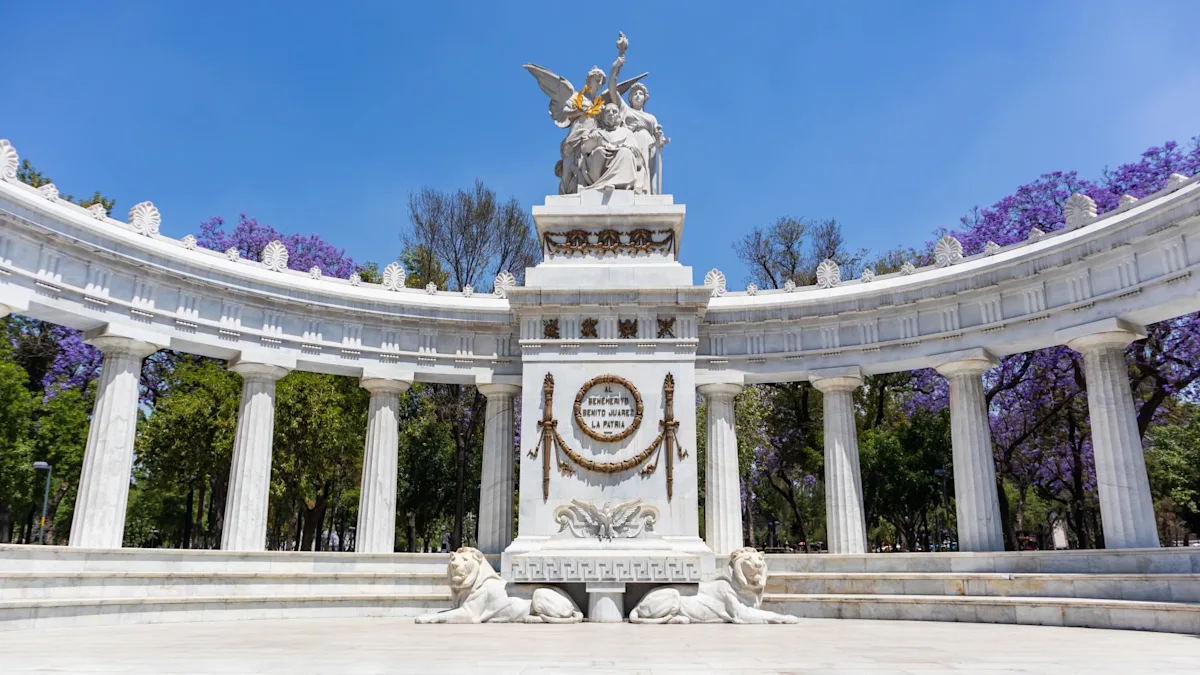
Of all the things to do in Mexico City, viewing the city’s vast architectural wonders is a must-do for every type of traveler.
6. Plaza del Zócalo.
Formerly the ceremonial center of the Aztec Empire, Mexico City's Main Square — or Plaza del Zócalo — is where everything happens. Standing in the middle of Zócalo, it’s hard to not feel small amongst the majestic surrounding buildings and iconic architecture.
The square features the seat of the Roman Catholic Archdiocese of Mexico, the President and legislature and the Old Portal de Mercaderes. Just beyond the square’s northeast lies the Templo Mayor, the unearthed ruins of the now-buried Aztec city of Tenochtitlan.
The Zócalo also happens to be near many of Mexico City’s best boutique hotels.
7. Ruins of Templo Mayor.
Only a short walk from the Plaza del Zócalo, the ancient steps of Templo Mayor offers a glimpse of one of Mesoamerica’s most innovative civilizations. Massive stone steps offer a stunning contrast to the site’s contemporary surroundings in downtown CDMX.
Templo Mayor was once the heart of the Aztec religion, honoring the Aztec gods of war and agriculture, until it was destroyed by Spanish Conquistadors in the early 1500s. For nearly 500 years, the ruins of Templo Mayor lay buried until they were discovered in the late 1970s. Ever since, Templo Mayor has been the site of a major archeological dig with an accompanying museum that’s open to the public.
8. Palacio Postal.
There might not be a postal office on Earth as gorgeous as the Palacio Postal (yes, you read that right). Commissioned in the early 1900s and dedicated as an artistic site in the 1980s, the Palacio Postal is a fully functioning postal office in the heart of Mexico City, but also offers a unique blend of Mexican and Italian architecture. The sight is breathtaking and certainly worth the short walk from the Plaza del Zócalo.
9. Gran Hotel Ciudad de México.
You don’t have to stay at the Gran Hotel Ciudad de México to enjoy its spectacular views of Plaza del Zócalo and explore the hotel’s own stunning design. The Gran Hotel is also within walking distance of many other major landmarks and attractions like the Palacio Nacional and Templo Mayor.
10. Palacio Nacional.
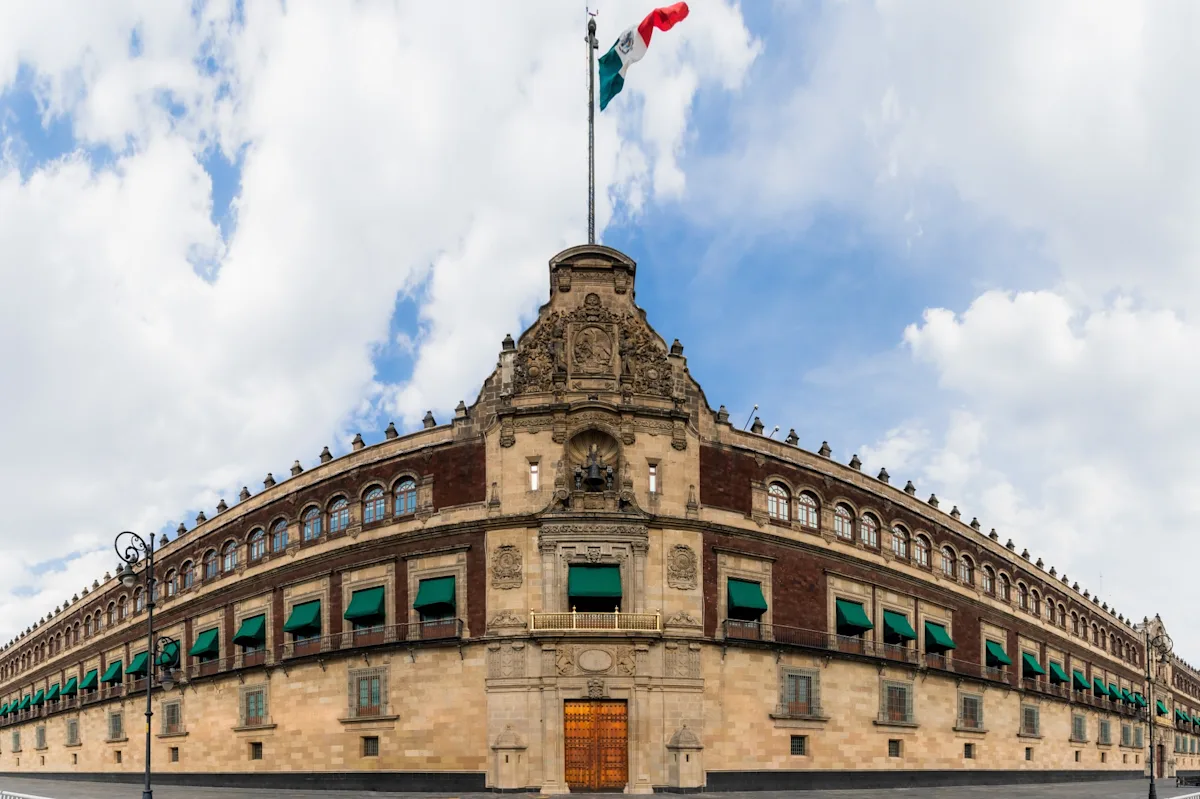
The Palacio Nacional, or National Palace, is the residence of the President of Mexico. Like much of the historic district of Mexico City, the Palacio Nacional was constructed in the early days of Spanish rule after the fall of the Aztec Empire.
11. Casa de los Azulejos.
The Casa de los Azulejos, or “House of Tiles,” is aptly named for the gorgeous blue and white Puebla tiles that cover three sides of the structure. The house was originally built in the 1500s and was covered in tiles sometime in the 18th century (the exact reason for which isn’t widely known).
In the early 1900s, the House of Tiles was bought by the Sanborns Group, which restored and converted the baroque home into one of CDMX’s top restaurants.
12. Torre Latinoamericana.
There’s no better way to see all of Mexico City from above (well, maybe aside from a helicopter tour) than the Torre Latinoamericana, or “Latin American Tower.” If you travel to the top, you’ll find an observation deck where you can get a full panoramic view of the city from the center of the Historic District.
13. Teotihuacán.
No long weekend in Mexico City is complete without a visit to Teotihuacán, one of the few remaining cities of the ancient Aztecs. Teotihuacán’s twin Pyramids of the Sun and Moon offer dazzling vistas of a city that was once populated by as many as 125,000 people. Its many temples capture the daunting yet culturally rich history of one of the world’s most powerful empires. Teotihuacán, which is also a UNESCO World Heritage site, sits about 25 miles northeast of CDMX.
Find great tips, including more exciting day trips from Mexico City, in Fora Advisor Leslie's guide:
14. Chapultepec Forest.
The Chapultepec Forest, or Bosque de Chapultepec, is easily one of Mexico City’s top landmarks. In addition to offering a breath of fresh air away from the city’s urban ventures, Chapultepec Forest features Mexico’s largest and most successful zoo, hiking trails, lakes and fountains, small amusement parks, several major museums and tons of other things to do. The park borders Polanco to the north and Zona Rosa to the east.
15. Floating Gardens of Xochimilco.
The Floating Gardens of Xochimilco are sometimes called “Little Venice” because of their colorful, gondola-style boats and beautiful, flower-filled canals. Here you can barter with the independently trajineras for a ride through the system’s waterways, estimated to be over 100 miles long. Like Teotihuacán, Xochimilco is a UNESCO World Heritage site. The area was originally settled by the Aztecs as an agricultural center. However, after the Spanish took over, the land was converted over the centuries.
Museums in Mexico City.
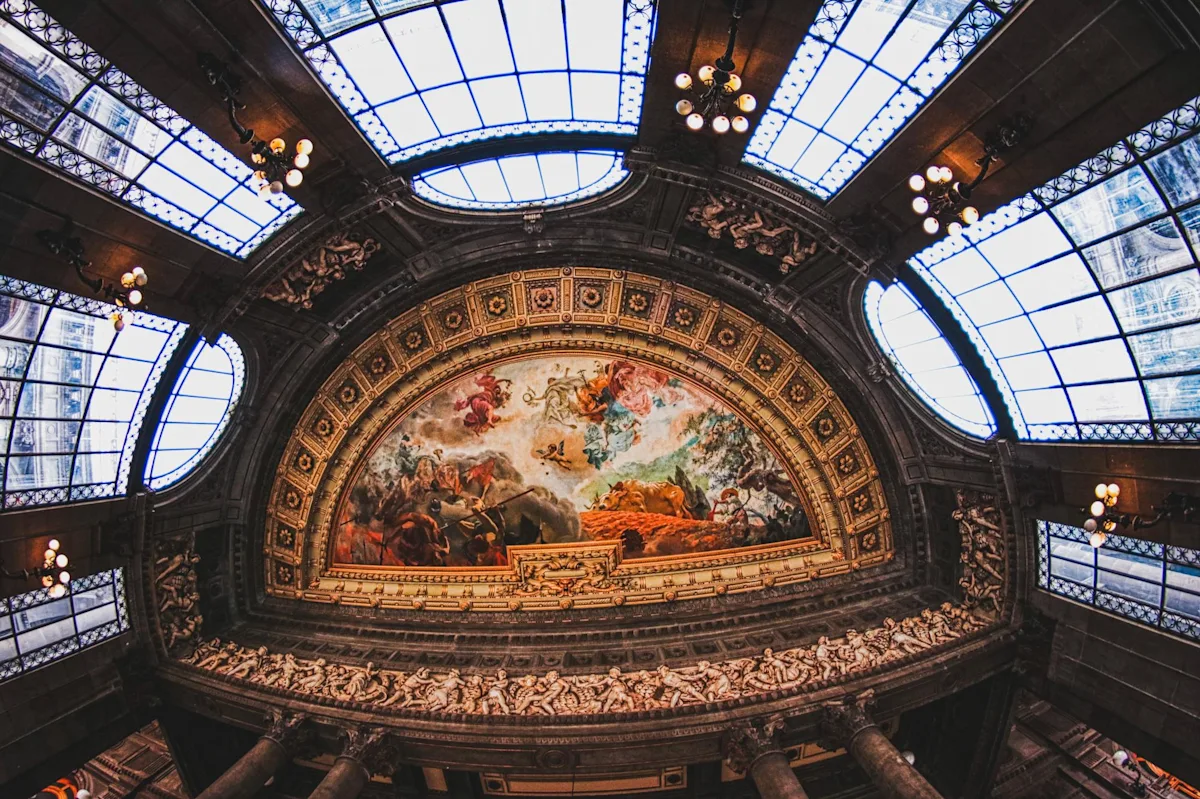
There’s no better source for cultural immersion in Mexico City than the area’s countless world-famous museums.
Check out Fora Advisor Gloriel's guide to cultural immersion in CDMX:
16. Palacio de Bellas Artes.
The Palacio de Bellas Artes, or “Palace of Fine Arts,” is Mexico’s most prominent performance arts center. Sometimes called the “Cathedral of Art in Mexico,” around 10,000 visitors attend the Palace’s many events and shows in dance, opera, theater and literature.
The Palace itself is also an art exhibit. An architectural marvel dating back to the 1930s, the Palace features a Neoclassical exterior and Art Deco interior, with murals created by famous artists such as Diego Rivera and David Alfaro Siqueiros.
17. Museo Frida Kahlo (La Casa Azul).
The Blue House, or La Casa Azul, celebrates the life of renowned painter and feminist icon Frida Kahlo (along with her husband and fellow accomplished painter Diego Rivera). Here you can see Frida’s earliest works along with many of her personal belongings, preserved just as they were in the early 1950s.
18. Sculpture garden at the University Museum of Contemporary Art.
The sculpture garden at the University Museum of Contemporary Art isn’t really a tourist destination, but that may be its secret charm! The garden is built around a crater and is filled with ponds, botanical gardens and a wide assortment of sculptures featuring different art styles. The sculpture garden is also an oasis from the hustle and bustle of Mexico City. In fact, visiting the garden is one of the most relaxing things to do in Mexico City.
19. Soumaya Museum.
Of all the things to do in Mexico City, visiting the Soumaya Museum may be one of the most special. This world-class institution features one of the most complete art collections in existence. The wave-like facade of the museum presents a wicked contrast to the surrounding area, while its interior houses over 66,000 pieces spanning thousands of years.
From Mesoamerican artifacts to the works of famous European artists such as Auguste Rodin, Salvador Dalí and Vincent van Gogh, the Soumaya is a must-see even if you only have a passive interest in art — there are few places like the Soumaya Museum in the world.
20. Museo Nacional de Antropología.
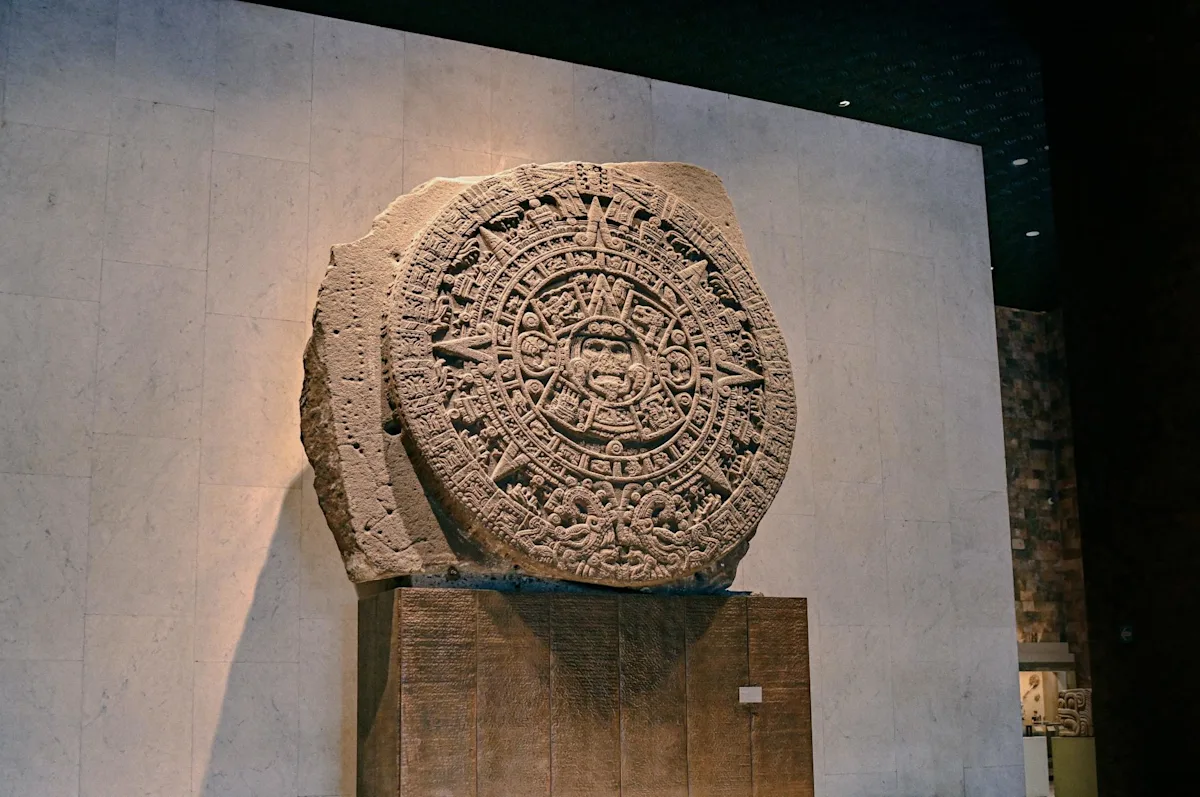
Visiting the National Museum of Anthropology is easily one of the top things to do in Mexico City. Tucked away in Chapultepec Forest, the museum features one of the largest collections of pre-Hispanic artifacts with permanent exhibits on many of Mexico’s past empires, including the Olmecs, Mayans and Aztecs, along with exhibits on the Indigenous peoples that live in the region.
Get the full scoop on visiting the National Museum of Anthropology by chatting with a Mexico City travel advisor.
21. National Museum of Art.
Located in the Historic Center of Mexico City, the National Museum of Art is easily denoted by its Neoclassical architecture and the Statue of Charles IV of Spain that resides just outside the museum’s main entrance. The museum explores the progression of Mexican art history as it diverged from Colonial European styles to forge its own identity.
See more of Fora Advisor Catarina's Mexico City recommendations:
22. Museo Jumex.
Museo Jumex doesn’t get as much attention as Polanco’s other great museum, the Museo Soumaya, but it’s just as worthy of a visit. Museo Jumex is devoted to contemporary art, including both exhibitions and connecting with the public. The architecture style is also eye-catching, with a unique spin on contemporary design.
23. Leon Trotsky House Museum.
One of the original founders of the Soviet Union, Trotsky spent his last years in exile in the house-turned-museum where he was assassinated by a Soviet NKVD agent. Here you can learn about the communist leader’s life and accomplishments. The museum also promotes the idea of political asylum. Plus, the Trotsky Museum is only a couple blocks away from the Frida Kahlo Museum.
24. Casa Luis Barragán.
The Casa Luis Barragán museum is another UNESCO World Heritage site. The museum displays the work of one of contemporary architecture’s most influential designers and has become a Mecca of sorts, for art and architecture connoisseurs alike.
Nightlife, bars, clubs, and other things to do in Mexico City after dark.
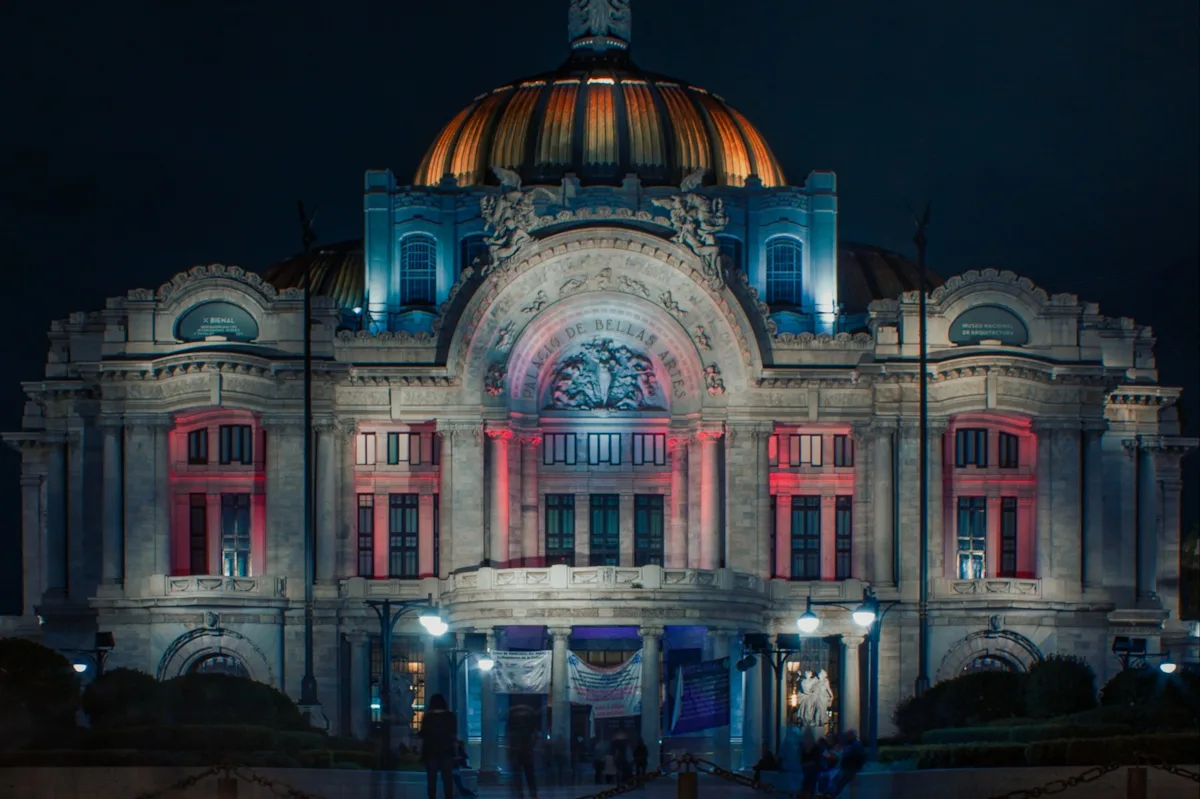
From Zona Rosa’s LGBTQ+ friendly bars and clubs to Polanco’s upscale lounges, travelers of all kinds can enjoy the vibrant Mexico City nightlife.
25. Plaza Garibaldi.
From dusk till dawn, (and then from dawn till dusk), the music of Mariachis and local artists from Mexico City fills Plaza Garibaldi. The square is considered the home of Mariachi music in Mexico City and is home to the famous Salón Tenampa, which has been in business since the square’s construction in the 1920s.
Note: despite extensive renovations in the surrounding area, there are reports of crime in Plaza Garibaldi. Be cautious when visiting.
26. Salón San Luis.
Tourists and locals alike are expected to dance the night away under the red lights in this Roma nightclub, styled by the hallmarks of the early 20th century. Black tie-clad waiters serve cocktails around the dance floor while the band plays a mix of merengue, salsa and cumbia tunes.
27. Molière 48.
If you’re into cigars and fine drinks, Molière 48 is a (somewhat) hidden gem. This not-so-secret cigar lounge caters to the luxury traveler, with an intimate setting and renowned hospitality.
28. Hanky Panky Cocktail Bar.
The Hanky Panky Cocktail Bar is a classic speakeasy a few blocks east of Zona Rosa. And when we say “classic speakeasy,” we mean it. You have to visit the bar’s website and make a reservation in order to get instructions on how to find it.
29. Fifty Mils.
Fifty Mils within the Four Season Hotel is recognized as one of the world’s top cocktail bars and such, visiting Fifty Mils is one of the top things to do in Zona Rosa. The bar features high-class cocktails and oozes elegance. The drinks are pricey but the experience is virtually unparalleled in CDMX.
30. Licorería Limantour.
If you’re not interested in the elite luxury of Fifty Mils, Polanco’s Licorería Limantour is another excellent cocktail bar in Mexico City that caters to a slightly wider audience with a more eclectic atmosphere. In fact, Licorería Limantour was named North America’s top bar in 2021 by 50 Best.
31. Patrick Miller.
Don’t let the unassuming name fool you, Patrick Miller is one of Mexico City’s top nightclubs. The place has a reputation for being a little edgier than the other clubs and bars near Zona Rosa, but its exclusivity also feeds into its appeal. The club is only open on Friday nights and features special themes, like 80s and 90s nights. Be warned, you’ll likely need to get a “password” from the club’s Facebook page if you want to visit.
Food, restaurants & places to snack (maybe the best thing to do in Mexico City).
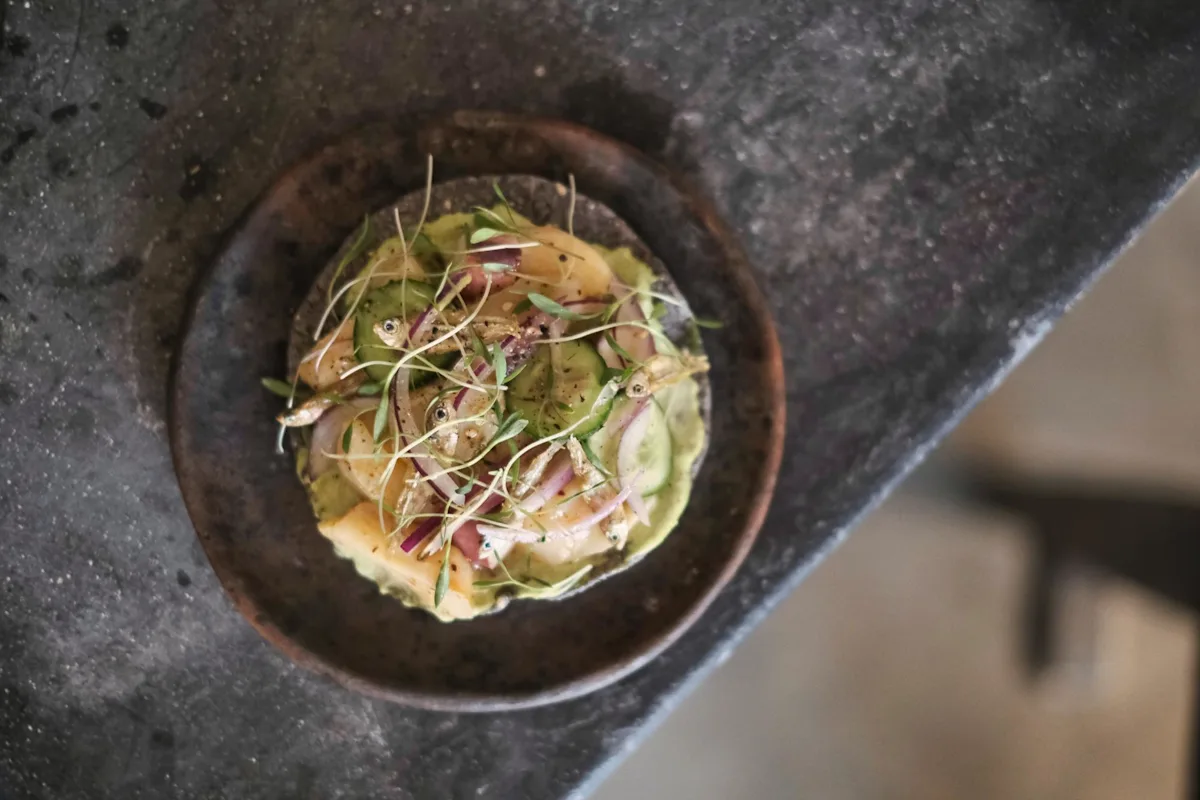
Options abound in Mexico City’s culinary scene. From traditional Mexican foods that blend Mesoamerican and Spanish influences to contemporary fusions, there’s truly something for everyone here.
32. Mesón del Cid.
Mesón del Cid has called Mexico City home for 50 years. The Spanish-themed restaurant offers an authentic menu and atmosphere, but the real draw may be its Medieval Dinner nights that occur every Saturday. Artists and musicians perform for diners while they enjoy Spanish staples from the dark ages. If you’re looking for a true feast in Mexico City, there may be no better option.
Check out Fora Advisor Natalie's guide for more Mexico City recommendations:
33. Churerría el Moro.
No dessert is more synonymous with Mexican culture than the churro and Churerría el Moro is arguably the best place to find them. The original location of this classy establishment was the first place to sell churros in Mexico City back in the 1930s.
34. La Ópera.
With opulent ceiling fixtures and decor that emulates the Neoclassical era, La Ópera Bar and Grill feels right at home next to the Palacio de Bellas Artes. The high-profile restaurant offers a diverse menu of Mexican and European cuisine that caters to both the adventurous and more traditional diners.
35. Amaya.
Amaya, which is technically located in the Juárez barrio but close to both Roma Norte and Zona Rosa, is more of a tourist spot than a local favorite. However, its fusion menu and wide selection of special diet considerations make it a great spot for anyone looking for a great meal.
36. Café de Tacuba.
Café de Tacuba features stunning decor and artwork from the early 1900s to complement its traditional Mexican menu. The restaurant is over 100 years old and has a storied history (as rich as its cuisine).
37. Il Becco Restaurant.
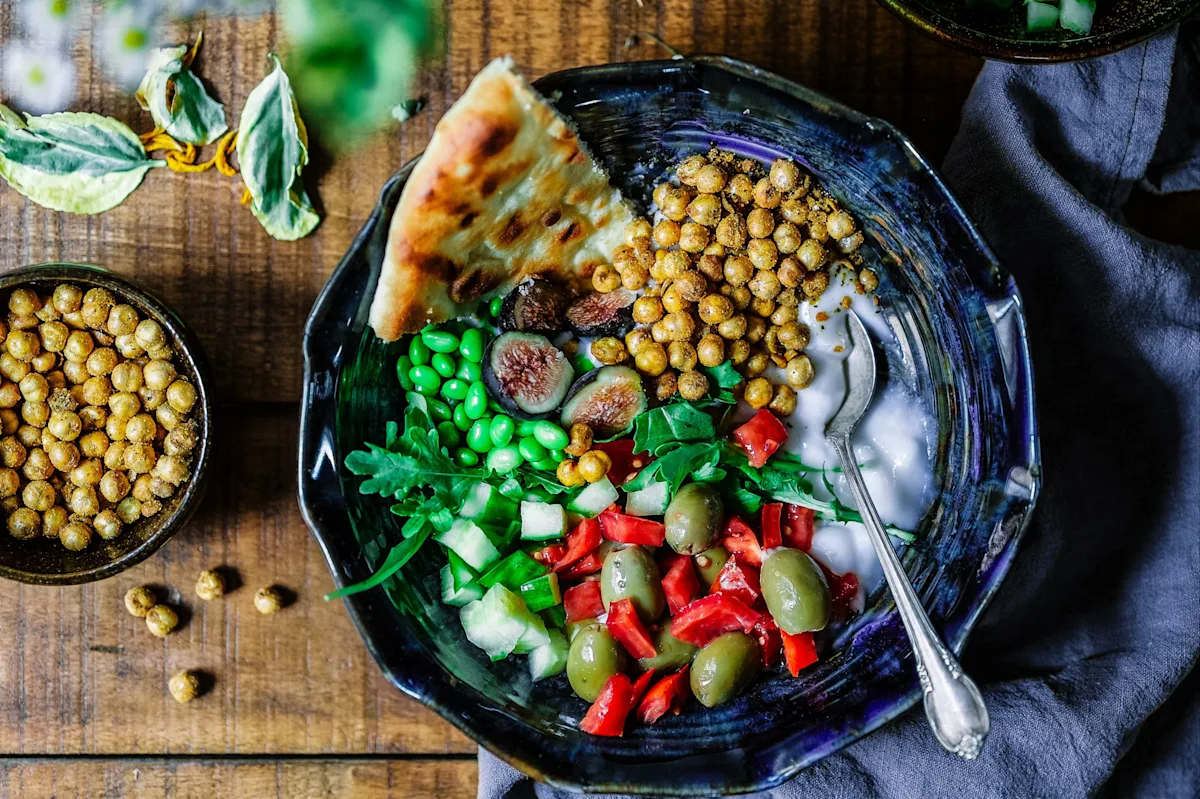
If you want something besides traditional Mexican food (hey, we don't judge), Il Becco in the Four Seasons Hotel offers an Italian and Mediterranean menu and a wide selection of vintage wines. The restaurant is as formal as they come, so this is your chance to dress to the nines. If you're wondering what to do in Mexico City that's both delicious and fancy, this is the place for you.
38. Restaurante Nicos.
Ask almost any local and they’ll tell you Restaurante Nicos is the best place to eat in Mexico City. The atmosphere is a formal, but visitors will tell you it's far from hoity-toity, as the staff is exceptionally gracious. Local ingredients feed a traditional menu that makes for unparalleled Mexican cuisine.
39. Quintonil.
While Restauranete Nicos earns the local nod, Quintonil is considered (by 50 Best) to be the ninth best restaurant in the world.
The contemporary Mexican menu is expensive and certainly caters to a more gourmet-focused clientele. However, if this is your one chance to experience a high-class, luxury meal, there’s no better opportunity in Mexico City.
40. Café Avellaneda.
If you need to satisfy your caffeine cravings, Café Avellaneda is a small, hole-in-the-wall coffee shop a few blocks from the Frida Kahlo Museum. Here you can get a blend of traditional Mexican coffee along with your typical coffee staples. Café Avellaneda also offers a host of pastries and other drinks if you’re not in the mood for coffee.
41. Café Negro.
Also close to the Frida Kahlo Museum, Café Negro sports a super contemporary decor style not unlike the many cafes and coffee shops you’ll find throughout America’s biggest cities. However, the menu offers a great blend of Mexican and traditional brunch and breakfast options.
Pssst: Craving more foodie recommendations? Check out our guide on the best restaurants in Lima, Peru.
Entertainment, events, and other things to do in CDMX.
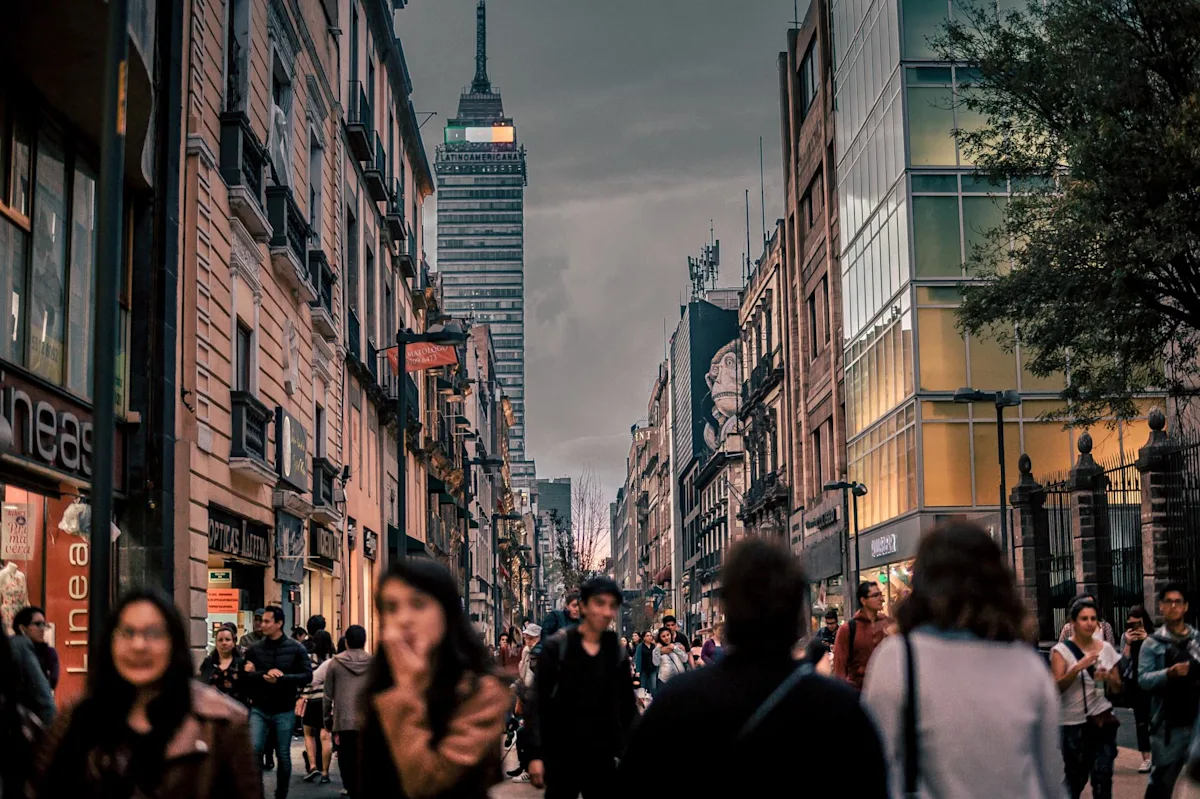
CDMX isn’t just an art and architecture hub. The country’s biggest city also offers a ton of entertainment options as well as an incredible music scene. Here are a few more great things to do in Mexico City:
42. The Vive Latino Festival.
The Vive Latino festival is one of Latin America’s biggest music events and hosts a huge range of Spanish-speaking artists. The festival is usually held in March or April and takes place at the Foro Sol, one of CDMX’s largest venues.
43. Lucha Libre.
Lucha Libre is so much more than an alternative to WWE. The combat style is far more acrobatic, featuring colorfully masked fighters demonstrating “high-flying” maneuvers. And there’s no better place to see the Luchadors than the Arena México in CDMX.
44. Cineteca Nacional.
The Cineteca Nacional, or National Cinema, is Mexico City’s most famous movie venue. There’s no better place to explore Mexico’s wealth of cinematic history. The theater mostly shows art house films and documentaries, but occasionally shows mainstream films as well.
45. Corona Capital.
Whereas the Vive Latino Festival mostly showcases Latin American artists, the Corona Capital festival hosts famous rock and alternative artists from all over the world. The Black Keys, The Killers, Foo Fighters, Weezer and Twenty One Pilots are only a few of the high-profile artists that have graced Corona Capital’s stages since the festival first began in 2010. The festival is normally held in spring.
Need help planning more amazing things to do in Mexico City? A Fora Advisor can help!
A Fora Advisor can help you find all the best things to do in Mexico City. Even better, they can help you tailor the experience to your taste!

